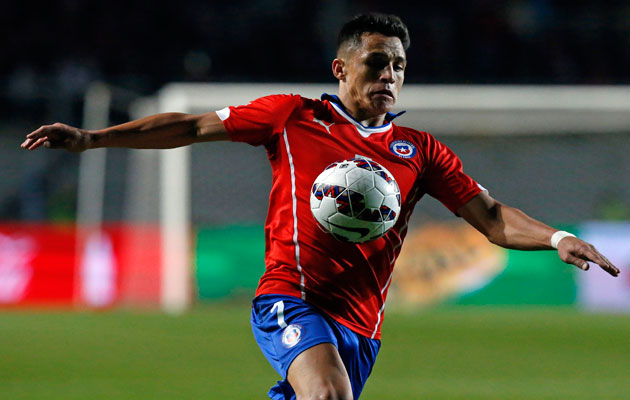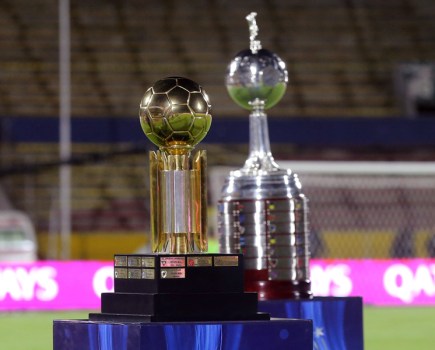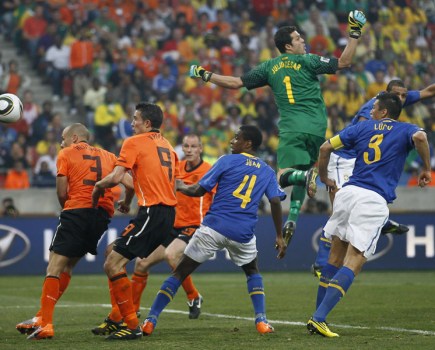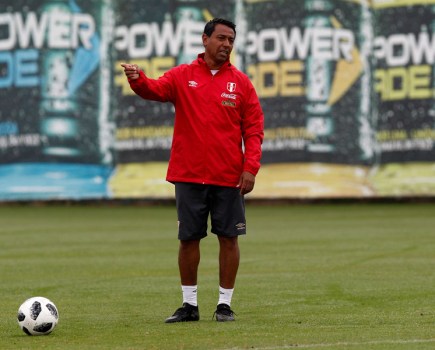The warm up friendlies have added extra evidence to the idea that Chile 2015 could be a vintage Copa America – unless, of course, you are a Bolivia fan. Mauricio Soria’s side collapsed pitifully to a 5-0 defeat against Argentina on Saturday. Paraguay, too, will not be especially happy about being held to a 2-2 draw at home to Honduras, while Peru were also held 1-1 at home to Mexico’s second string side.
There is little surprise in the disappointing performances given by these three teams. None of them are enjoying a particularly good moment, and all of them have new coaches who have had very little time to prepare for the Copa. Their principal aim in the next few weeks is to bond a team together for the coming World Cup qualifiers. In that sense, then, maybe competition hosts Chile have more to worry about. They have been building towards this tournament for some time – but the goals seem to have dried up.
They went down 2-0 and 1-0 in March to Iran and Brazil respectively, and despite an early goal could only beat El Salvador 1-0 in a friendly in Rancagua on Friday night. For all of their attacking ambition and inspirational moments, they are lacking penalty area penetration and are always in danger of leaving themselves open to the opposing counter attack – a cause for concern against opening day opponents Ecuador, who despite some early defensive wobbles disposed of a decent Panama side with ease, Jefferson Montero in spired form as they won 4-0.
With Sergio Aguero sparkling and Angel Di Maria not far behind, Argentina looked like they mean business in their destruction of Bolivia. The current generation know they are running out of time to win a senior title. In last year’s World Cup the big name stars all seemed to be running empty after the European season. Perhaps there is more gas in the tank this time round.
Uruguay gave more signs of their rebuilding process with a 5-1 win over Guatemala. Luis Suarez, of course, is still serving his suspension and sits out the tournament – a chance for Edinson Cavani to lead the line, and for a new generation to stake their claim. Cavani scored twice, and there were goals for Diego Rolan, standing in for Suarez, as well as young playmaker Giorgian De Arrascaeta and Abel Hernandez.
And on Sunday Brazil played at home for the first time since the World Cup debacle. The setting was impressive – the new ground of Palmeiras in Sao Paulo is widely seen as the best of Brazil’s new stadiums – but the pitch was in poor condition and the crowd strangely quiet in the course of Brazil’s 2-0 win over Mexico. It was a low key affair where Mexico hardly threatened and Brazil, without Neymar, created few opportunities. The goals, though – both in the first half from Phillipe Coutinho and Diego Tardelli – stood out as fine collective moves, positive signs for the Copa.

In its 99 years the Copa America has had an uneven history. In its early years it was frequently held annually. In the 1940s it played host to some of the finest football seen up to that point. But the competition had fallen into disuse until it was brought back in 1987 –a year into the long reign of Paraguay’s Nicolas Leoz as president of CONMEBOL.
The Leoz project was a partnership with TV. The Copa was resumed as a made-for-TV competition. In subsequent years came the introduction of the marathon format of World Cup qualification, with all ten countries playing each other home and away – a hugely significant moment in the development of the continent’s national teams. And then there was the expansion of the Copa Libertadores, the continent’s equivalent of the Champions League – all happened on the watch of Leoz, and all were bankrolled by television, where the explosion of cable was opening up profitable opportunities.
All of this has taken on huge importance since the divulgation of the FBI investigation into FIFA corruption, much of which has centred upon backhanders and bribes paid by media rights organisations to the leaders of football associations. Leoz, of course, is at the heart of this meeting, and last week was placed under house arrest pending an attempt to extradite him to the USA. At 86, and in frail health, that may not be an easy request to grant. And he has clearly sought to protect himself. In the 1990s it was declared that the CONMEBOL building, on the outskirts of Paraguay’s capital Asuncion, has diplomatic immunity, like an embassy. As is stands the building is off limits to lawmen of any jurisdiction.







